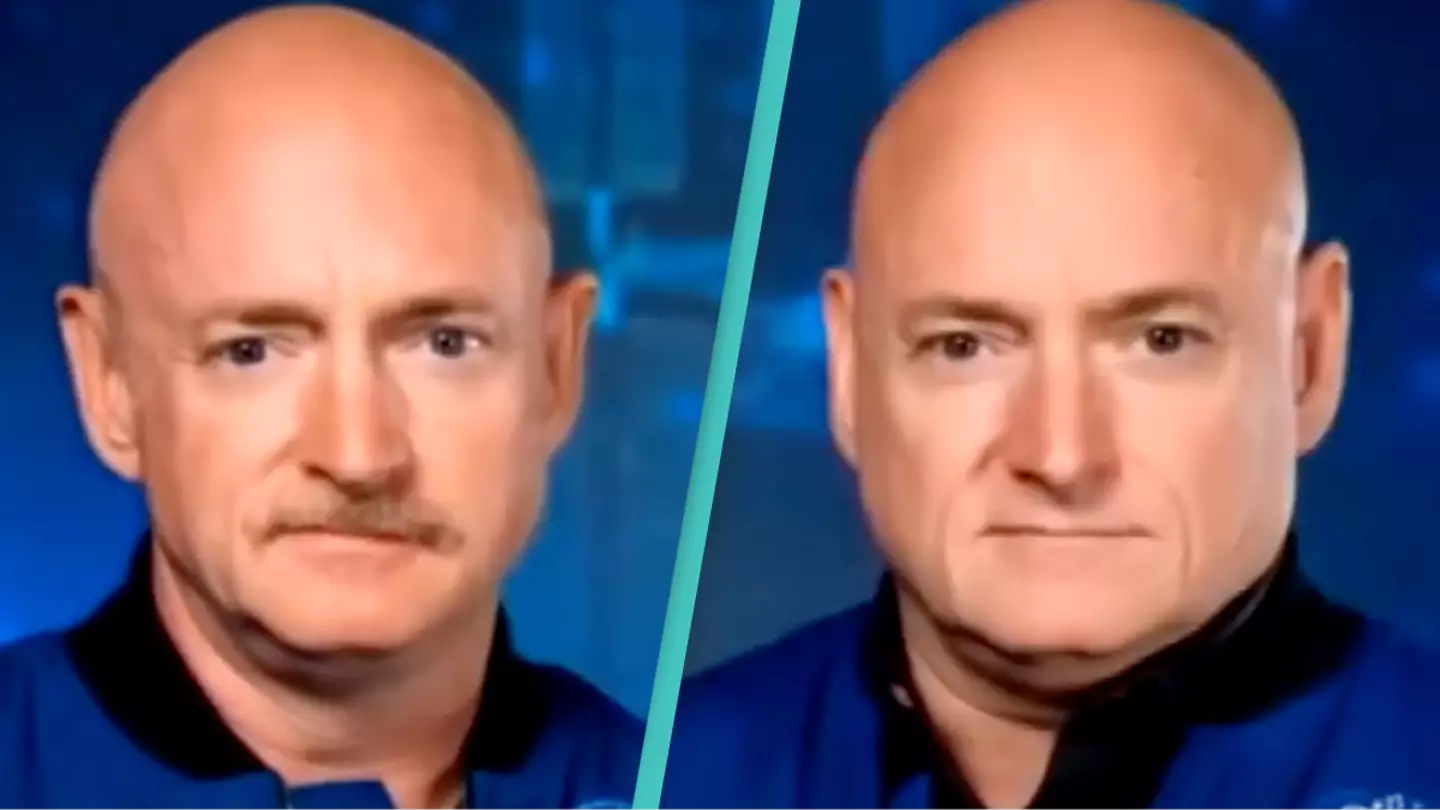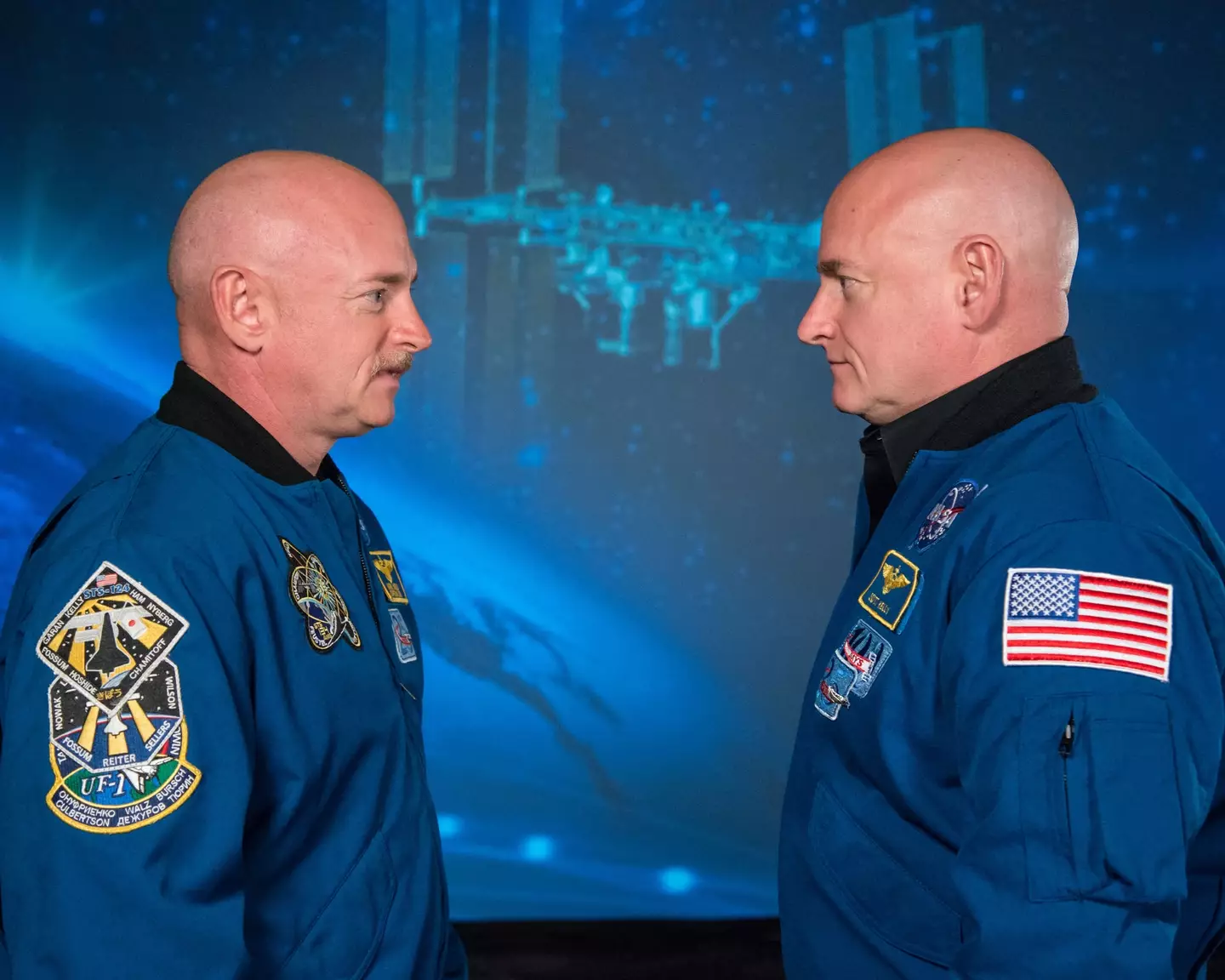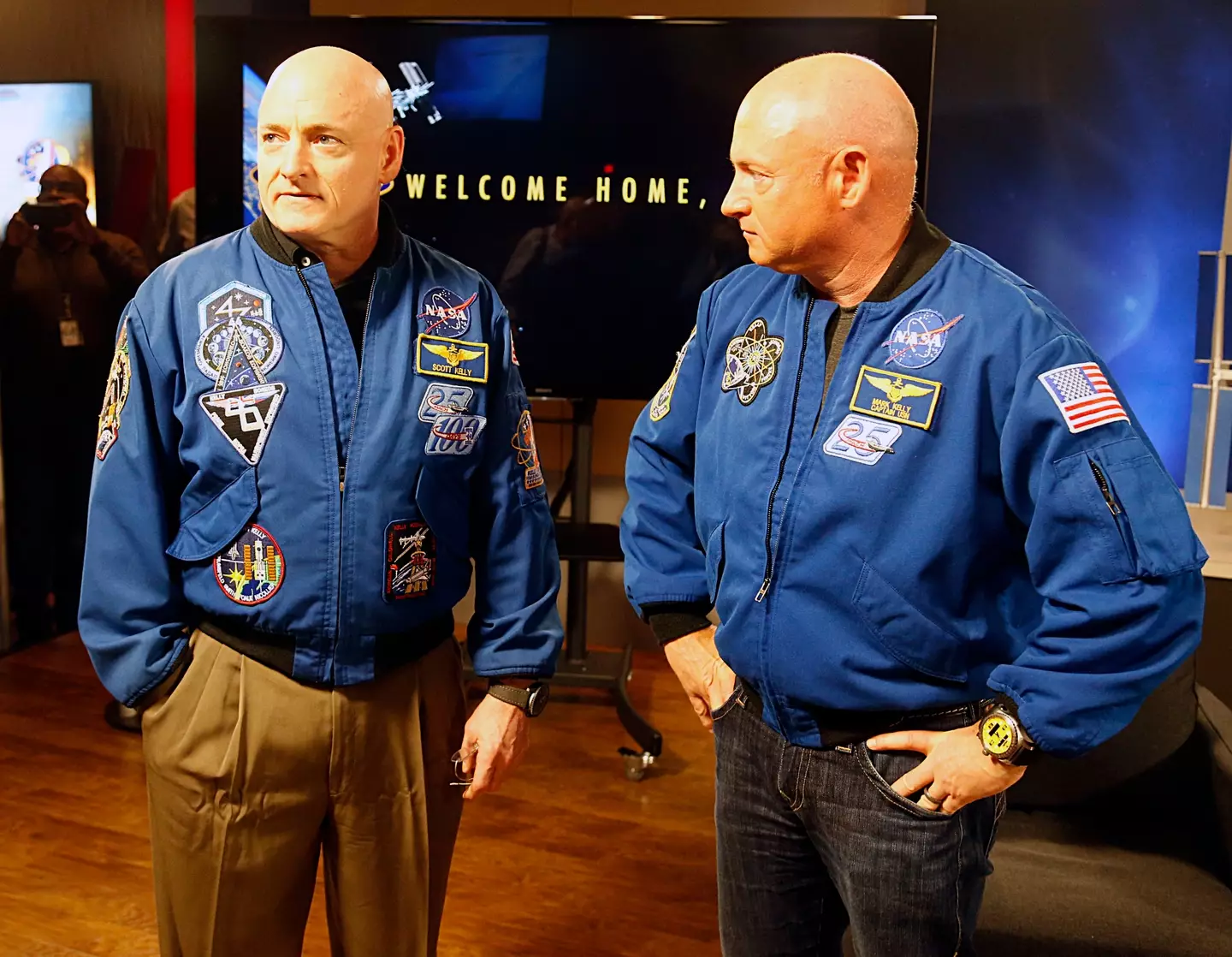
Traveling at 17,400mph would do some damage on your body you'd imagine, but astronauts do it all the time and they don't come back as flat as a pancake.
Although, maybe it does have an impact - ask Scott and Mark Kelly, identical twins albeit not so identical anymore... if you look at their genetic expression anyway because they very much still look alike.
Yes, since scientists first mastered rocket launches and the ability to survive outside of Earth's atmosphere, a lot of humans have spent time in space and those trips have allowed researchers to gain a better understanding of the human body.
Advert
We know a lot more now about what happens to humans after six months aboard the International Space Station, but it took a 'landmark' study to offer insight into longer trips.
Thanks to the Kelly brothers, the 'Twins Study' was carried out by NASA and it involved them examining the pair - who as it turns out are both astronauts.
Since the twins share the same genetic makeup, the researchers were able to determine what changes took place in response to the environment around each participant.
As Scott headed into space for an almost year-long mission to the ISS in 2015, Mark stayed on the ground to provide a baseline example of measurements from Earth.

Scott spent one year in space, after which ten research teams from around the country looked into the physiological, molecular and cognitive changes that took place.
Check out what they found below...
Weight changes
Scott's body mass was found to decrease by seven percent during his year in space; a change likely caused by increased exercise and controlled nutrition while on his mission.
Meanwhile, Mark gained four percent body mass.
During the first six months of his time in space, Scott's bone breakdown and bone reformation cycle occurred at a faster rate than the second six months, when his exercise volume was lower.
Height
After having been identical for most of their lives, Scott and Mark faced some changes upon Scott's return as he was suddenly 5cm taller.
His increased height came about as a result of the lack of gravity in space. On board the International Space Station, the microgravity makes the spine longer, allowing Scott to tower (slightly) over his brother.

DNA and genes
NASA explains that the end of each strand of DNA has special features called telomeres, which work to protect our chromosomes.
As we age, these telomeres tend to get shorter, though lifestyle factors, stresses and environmental exposures can affect the rate at which the shortening occurs.
The researchers noted that Scott not only experienced a change in telomere length dynamics during his spaceflight, but also within days of landing.
The correlation between the telomere changes and Scott's vitamin B-9 levels backs the notion that nutrition plays an important role in all aspects of health both in space and on Earth.
Other changes were found in Scott's gene expression, some of which continued more than six months after his return to Earth.
Some of the DNA damage observed is believed to be a result of radiation exposure, but the observation of his changing gene expression helped inform researchers about how the human body was able to adapt to the extreme environment of space.

Cognitive changes
For the most part Scott's cognitive performance, including his mental alertness, spatial orientation and recognition of emotions, was largely unchanged during his time in space, indicating astronauts can maintain high levels of cognitive performance for longer durations while up among the stars.
However, researchers did note a decrease in speed and accuracy after he landed, which persisted for six months.
It's thought these changes may have been due to the adjustment to Earth's gravity and re-exposure to the atmosphere, as well as Scott's busy schedule upon landing.
Changes to the eyes
One of the strangest results of Scott's time in space was the changing shape of his eyeballs and impacts to his vision.
Fluid shifts in the body due to zero gravity may help explain why astronauts can experience vision problems during spaceflight.